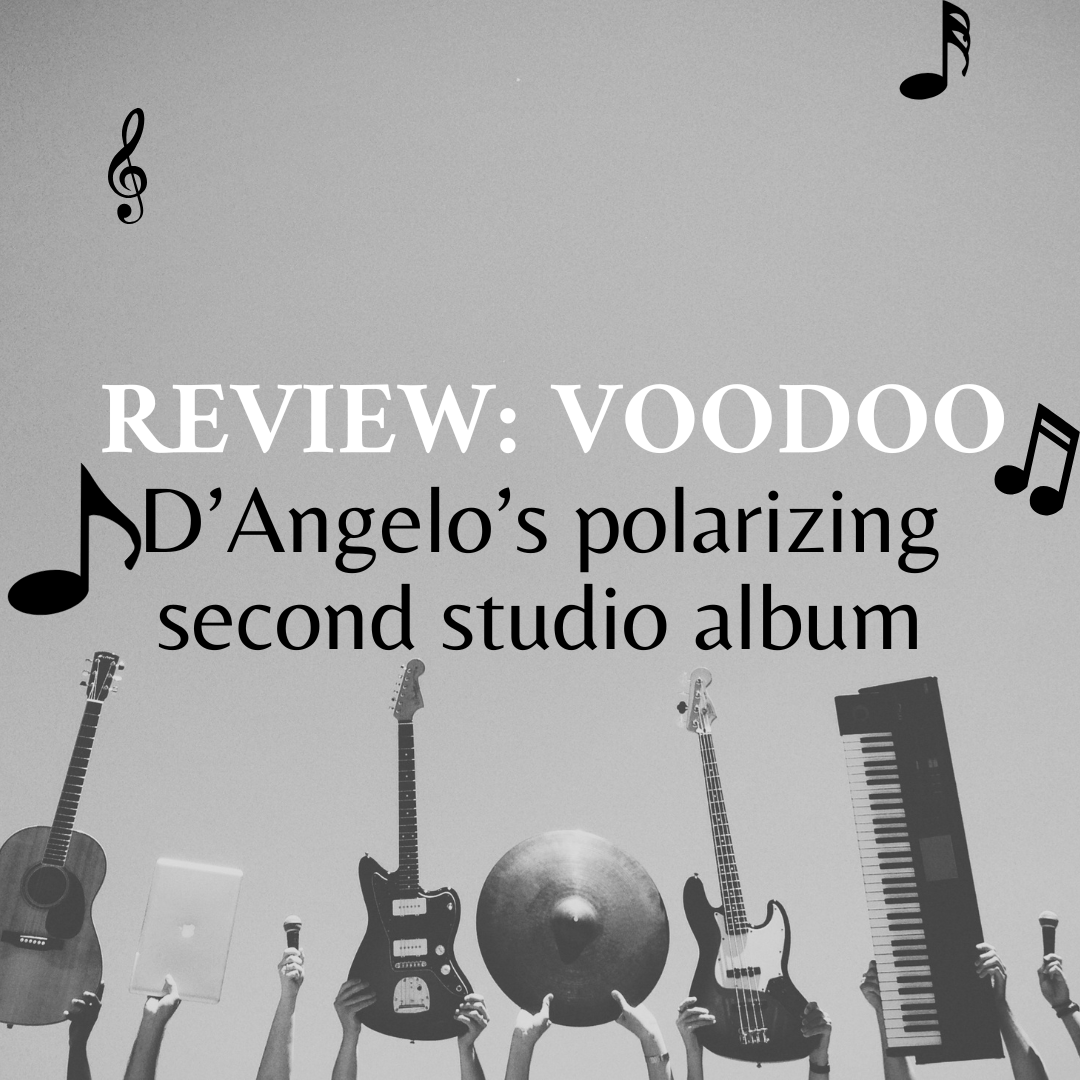In a world of commercial R&B breakout hits and albums, singer-songwriter and producer D’Angelo wanted to steer away from that repetitive sound and go for a trancing experimental route. He would perfect this sound on his second studio album, “Voodoo” released on Jan. 25, 2000. Crafted during jam sessions with legendary producers Questlove, James Poyser and J Dilla, the album took inspiration and influence from an array of jazz, funk and r&b artists such as Prince and Marvin Gaye.
This is definitely a “sit-down and soak in every groove” kind of album. A flurry of voices invades your ears which is then cut off by a newsy jazz beat that immediately comforts you. D’Angelo’s voice may catch new listeners off guard especially on “Playa Playa” and “Devil’s Pie” with his haunting and constant cadence to the point where it massages your ears in such a way that you can’t focus on what he’s saying.
For someone with so much talent, it’s no question that he would feel confident in the effect his music can have on people and the genres that he experiments in. On “Chicken Grease,” he treats jazz-funk like his playground. He puts his full understanding of jazz music on the production side, frying the listener to golden-brown crispiness. We see a rare moment of braggadociousness as he fully understands how influential and special he is, boasting, “I got the music and the instruments, use ‘em as my weapons at hand.”
D’Angelo uses his vocal harmonies and reverberating inflections as his own instrument in the mix. Despite his intentions his lyrics shouldn’t go underlooked, especially on “One Mo’Gin” which details his conflict between letting go of a woman caught in a love triangle, or persuading her to run back to him. He explores love from different avenues of expression. One of them which would become his biggest selling point as an artist, and a major factor for his hiatus, was sex.
While this taboo topic had its place in music for decades before his time already, D’Angelo expressed it differently than any other artist was at the time. His angelic and slick voice enhanced his sexual bravado in songs like “Feel Like Makin’ Love.” Although it’s a cover of the 1974 version sung by Roberta Flack, his delivery of each line accompanied by the snap of the drum beat and the funky bass line only made the atmosphere so much more sexual than it had been intended to be originally.
His biggest song to date, charting at 25 on the Hot 100 singles titled, “Untitled (How Does It Feel)” showcases his excellence at making a raw love song best. The bass line, steady drum kick, heartstring-ripping guitar licks and piano draw the listener in so much that the lyrics of the song are overshadowed by its production. That’s the magic of D’Angelo as an artist. He makes it impossible to focus on everything at once. His purposeful production elements and voice lets the music move your body and mind to places you will dream you could be at forever.
The last track on the album, “Africa”, succeeds the penultimate “Untitled (How Does It Feel)” in a shocking way. D’Angelo makes the transition from sexual intimacy to heritage and familial pride work in a remarkable way. Sounds of water streams, wind chimes and African drums lace the track with an enlightening neo-soul feel. Ending the album off with a song cherishing his son and feeling enriched and proud of his ethnicity is nothing short of the positive note that D’Angelo would’ve taken on a grandiose album like this one.
“Voodoo” is nothing short of impeccable. His production whether it be smooth jazz, neo-soul or funk, he finds his pocket to operate in, his voice adapts to the language the beat is speaking to him in, and speaks messages of the cruelty of modern black culture, sexual desires and embracing his African heritage. When an already talented man studies black music for years, you can’t expect anything but the best of those genres he pulled from to be compiled together. “Voodoo” will forever be a keystone for not just the genres he experimented with but for music as a whole.
*Editor’s note: Maximus Cole and Jada Nichols are student writers. All views expressed in the commentary are their own and are independent of the district, Rouse High School and the publication.


